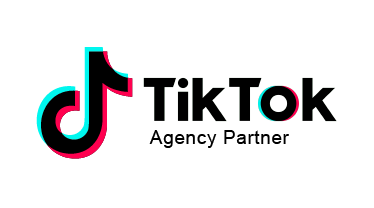ECommerce SEO Strategies for 2023
As an eCommerce business, you have many options to enhance your search engine ranking. The best way to get started with eCommerce SEO is by working with an expert. Ecommerce SEO is an important part of your company’s overall digital eCommerce marketing strategy. It can help increase your revenue by enabling you to reach more customers. If you’re looking for solid advice on how to approach eCommerce SEO in the future, read on.
Table of Contents
Building An SEO Strategy For Ecommerce Websites
If you’re an eCommerce website owner, your main focus should be getting people to come to your website and ultimately buy from it. eCommerce SEO is the process of improving your website’s search engine ranking. Building trust through SEO strategies is crucial for modern-day businesses that want their customers’ loyalty.
According to Seer Interactive – Ecommerce SEO Strategy Increases Organic Revenue by 64% Power brands already have a competitive edge in terms of brand recognition and devoted customers. However, it is important that businesses apply effective SEO brand methods to funnel consumers to their items, or else their competitors will infiltrate and steal the clicks and purchases.
Ecommerce keyword research
Keyword research is the critical first step in an eCommerce SEO campaign. If you get this part wrong, two things will happen: You’ll target keywords too difficult to rank for and won’t make it to page one. You’ll rank for keywords that don’t garner traffic or cause customers to buy. Your online store must appear at the top positions of SERPs.
Content Marketing
Content marketing is a great way to build brand recognition and show off expertise in your field. It also helps you create relationships with potential customers who may become loyal. Use the main keyword in the product descriptions 3-5 times.
Build a Mobile-Friendly Site
The best way to ensure your eCommerce website’s SEO is to build it on a mobile-friendly platform. Make Your Site Mobile-Friendly for Google – this is critical for eCommerce sites. If you’re using a custom-built solution, it’s important to ensure that it’s optimized for mobile devices. The more traffic you get from mobile devices, your SEO ranking will be better in Google’s search results. This is because Google uses mobile-friendliness as one of its SEO ranking factors.
Initial Ecommerce SEO Audit
An eCommerce audit is an important part of your SEO strategy and will help you understand what needs to be done to improve your site’s performance. The audit should cover all aspects of your site, from design to content and checkout funnel.
An effective eCommerce audit will:
- Identify opportunities for improvement based on industry best practices, competitor analysis, and Google’s recommendations.
- Help you create a plan with clear goals to improve your site immediately.
Essential Elements Of Ecommerce SEO
Ecommerce SEO isn’t a one-size-fits-all approach. Every store has unique characteristics, audience and product offerings that differentiate it from its competitors. No single eCommerce marketing strategy will work for every store—it needs to be tailored specifically for each site and business model.
For this reason, we recommend working with an experienced agency that has a proven track record in eCommerce SEO (and understands how it differs from general search engine optimization). The right agency will help you develop custom strategies based on your specific business goals and needs to get ahead of your competitors online.
Consider creating a keyword matrix if you want to get serious about your SEO efforts and maximize your keyword spread. A keyword matrix is a way to dig through relevant keywords and organize your spreadsheet to quickly determine the best possible keywords to use on each page. It’s based on KD, search volume, and search intent.
Featured Snippets
Featured snippets are a particular type of search result, which their blue color and rich layout can identify.
They’re also known as “rich answers” (or RAs) because they’re designed to give users quick answers to their questions without having to click through to another page.
In eCommerce SEO terms, these are also known as “snippets” because they appear in the search results under the main snippet (or title tag).
Using Google Keyword Planner, you can find rough search volume and CPC to determine buyer intent. However, it doesn’t give you keyword difficulty (KD) or spread.
On-page SEO
On-page SEO encompasses everything you can do to optimize your website’s pages, such as title tags, meta descriptions, and alt text. It’s important because it helps search engines understand what your page is all about. This makes it easier for potential customers to find your site and for Google to show suitable ads next to your page.
This involves optimizing your website so that it ranks well in search engines. This includes ensuring that your title tags, meta descriptions, and headers are accurate and relevant to each page on your site. It also includes providing that all your internal links are nofollowed or noindexed. This will help prevent Google from penalizing you for having too many links from an external source.
When we talk about On-Page SEO in terms of an eCommerce site, it is majorly concerned with optimizing the product and category pages to rank higher for particular keywords and get relevant traffic and conversion rates.
SEO Branding
Add your brand name to your marketing collateral, including video, emails, and meta tags. It seems a simple idea, yet many companies disregard this technique that can help build their brand.
Long Tail Keywords
Long tail keywords are more specific, meaning they are much more likely to be searched. They also convert and appear more frequently in the SERPs (Search Engine Results Pages).
Google’s featured snippet is designed with long-tail keywords in mind. So if you want your target audience to find you quickly and easily, focus on writing content that uses these relevant keywords instead of general ones like “buy” or “find.”
For keyword ideas, you may also examine the websites of your competitors. Long-tail keywords are advised for usage in the meantime since they frequently match user intent and boost conversion rates.
You can use various keyword research tools to find suitable and optimized keywords for your site. These are listed below: Keyworddit SEMrush Soovle WonderSearch Keyword In, etc.
Meta Description
While this is not important regarding keyword rankings, the meta description for your homepage is a 160-character description of your business that will also appear in search beneath the title tag. Write it in a way that encourages people to want to visit your website.
Link Building for eCommerce.
Internal links are a great way to boost your eCommerce SEO. Link building or backlinking is a valuable long-term traffic-building tactic. Putting your primary keyword in the URL is a simple way to improve search rankings. This is especially relevant for websites competing in more competitive niches. Ensure a connection between the old URL and the redirected one, or you may lose out on SEO rankings.
Voice And Mobile Search Results
With the rise of voice search, Google is pushing to understand better what users want and how they want it. Mobile search behavior has changed drastically over the past few years because of mobile-first design and responsive websites. If you want to be successful in eCommerce, you must focus on optimizing your site for Google.
Reporting Back On Your SEO Strategy
SEO for eCommerce gives you a competitive edge over sites that are not optimized. Before using a product or category page keyword, you must identify its search volume, cost-per-click, user intent, or other factors. Reporting on your SEO strategy is a great way to keep everyone in the loop.
Our Final Thoughts
Knowing the latest developments in search engine algorithms will help you write content that Google’s algorithm will favor. Ecommerce SEO strategies are evolving, but they won’t go away anytime soon. The answers don’t always lie in keyword stuffing or having an eCommerce site. Sometimes, you need a great blog post or video with helpful tips and tricks.
Ecommerce in Malaysia is growing. It’s expected to triple by 2023.
Primal Digital Agency Malaysia can help you take advantage of this opportunity by optimizing your eCommerce site for search engines. Our SEO strategies for 2023 will help you:
- Attract more customers from search engines like Google and Bing.
- Rank higher in search results so that customers find your website instead of your competitors.
- Be found by people looking for products or services like yours.














Join the discussion - 0 Comment